Spring is a popular time to start a running program.
The weather is warming and summer is around the corner. For some people, that means belatedly starting on their New Year’s fitness resolutions like losing weight, attempting to run a 5K or exercising daily.
For others, it’s an impetus to start working on that long-dreamed-of beach body.
Whatever your reason for wanting to start running or exercising, health experts have a few tips to ensure your success this spring.
The most important thing is to set up “accountability measures” like telling loved ones of your goals and scheduling exercise time into your calendar each day, said Phillip Adler, a certified athletic trainer with the Spectrum Health Medical Group Sports Medicine Program.
“We all have cell phones: Write it into your schedule and set reminders. That’s the first step,” Adler said.
In addition, telling people of your goals creates “that second layer of accountability” because now there are people who expect you to workout and will encourage you to stay on your plan.
Making a plan
Megan Davis, a clinical athletic trainer with the Spectrum Health Medical Group Sports Medicine Program, started running consistently for the first time in her life in January with the hopes of losing weight. Her goal was to finish the Irish Jig 5K in Grand Rapids, Michigan, on March 19.
Davis asked co-workers to run and train with her after work, which has created that accountability Adler referenced.
“I think the biggest problem I have is having that yearning to run. I don’t want to do it,” said Davis, 29. “So I’m having friends around work participate as well. That’s made it much easier to stick to it.”
In 2015, nearly 70 percent of New Year’s Resolutions involved exercise, getting healthier and losing weight, according to a Nielsen survey of Americans.
But Americans who set fitness goals have tried and given up on those goals an average of four times, according to a University of Scranton study.
A pitfall to avoid—in addition to not setting up accountability measures—is “too much too soon,” Adler said.
“Most people overestimate their ability, push themselves too hard and they’re sore, and their body hurts the next day,” he said. “After that, it’s easy to lose the motivation to get back into the gym and get going again.”
Instead, people should start with modest, achievable goals, and slowly raise the bar. That will increase your chances of success.
“But the other common pitfall is people don’t push themselves enough,” Adler said. “If it isn’t uncomfortable, you’re probably not pushing yourself hard enough.”
Those exercising for the first time need to find that balance between pushing yourself too hard and too little.
Other tips
Eating better and sleeping more will help you have the energy to exercise better, keep motivation and lose weight quicker.
“It can’t just be about going to the gym: It’s a commitment to a complete lifestyle change,” Adler said.
If you’re not a self-starter, find a well-credentialed personal trainer to get you started. They can teach you good habits, as well as provide that necessary accountability.
And, if you can continue a program for three straight weeks, your chances of maintaining your lifestyle change will increase exponentially, Adler said.
“Once you get to 21 days, it gets easier, because you’ve made a habit,” he said. “That’s how long it takes.”
Davis says her goal at the Irish Jig 5K is to finish the 3.1-mile race without walking. Although she still doesn’t enjoy running, she’s been “really happy” that she’s stuck to her goals of training for a 5K for the first time.
“I love it when I’m done,” Davis says. “It feels great just to be exhausted from exercising.”
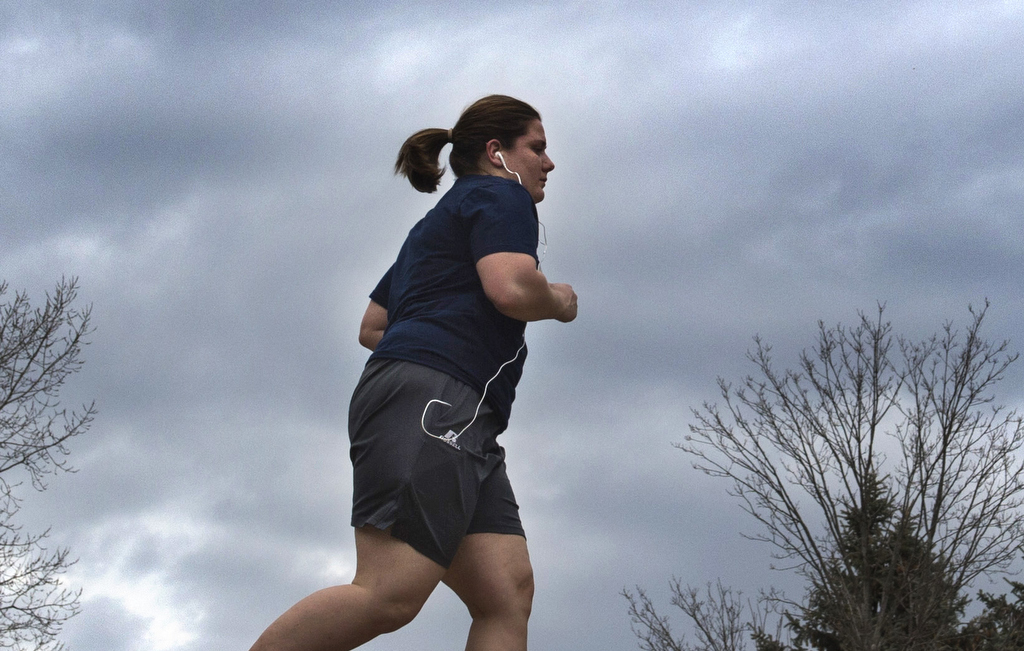
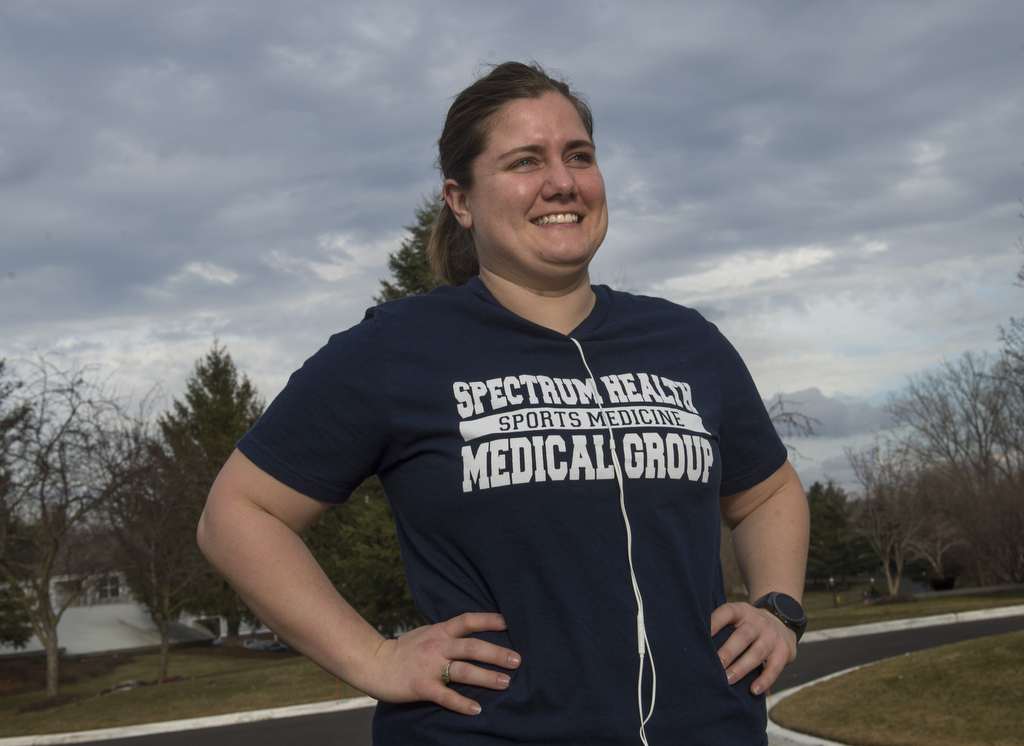
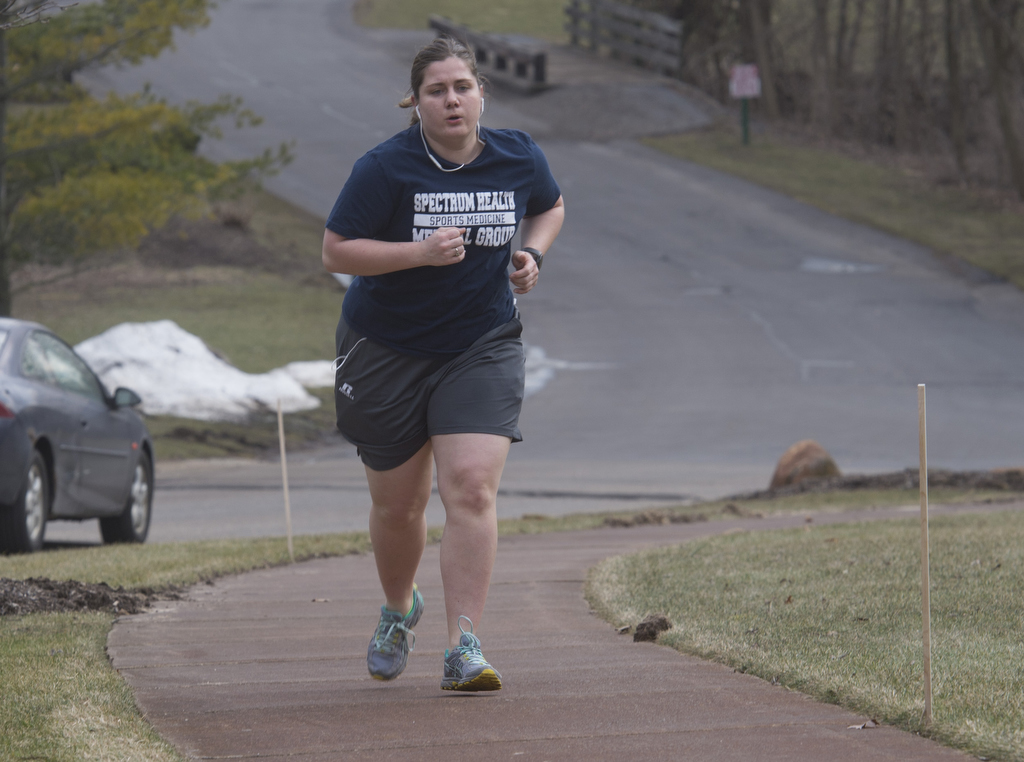
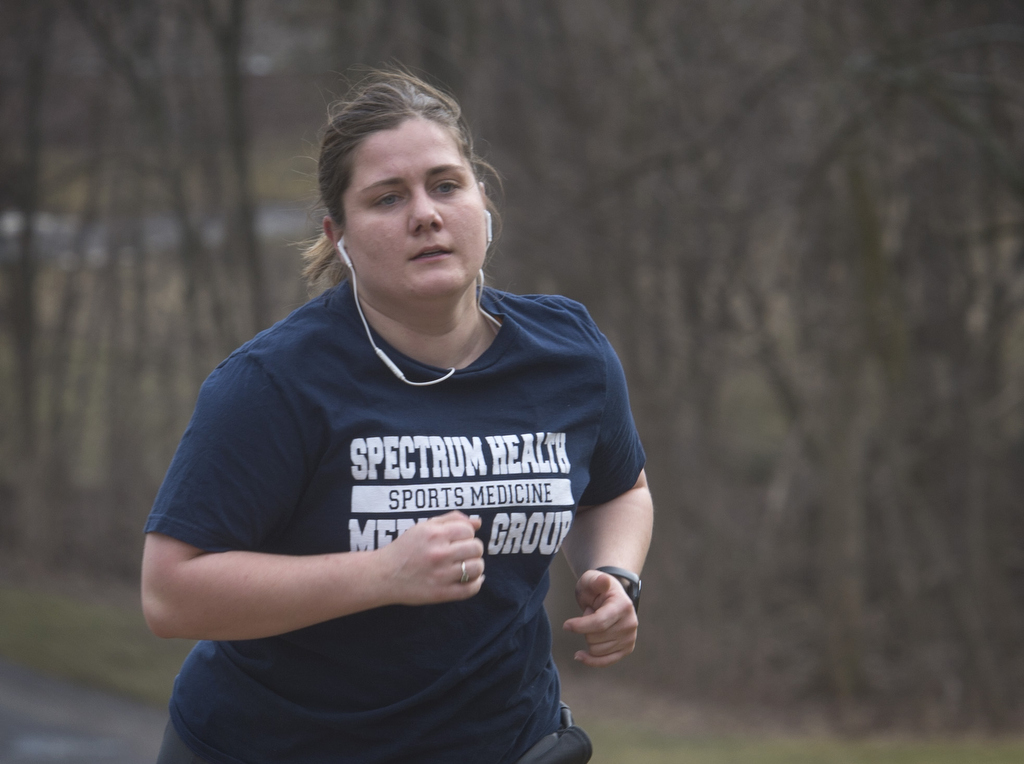
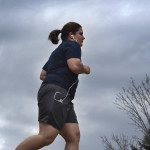



 /a>
/a>
 /a>
/a>
 /a>
/a>